What do international borders actually mean?
They’ve long been a source of wars, treaties and disputes. Most don’t involve firing guns, but peace surrounding many international borders is certainly uneasy, says Mick O’Hare

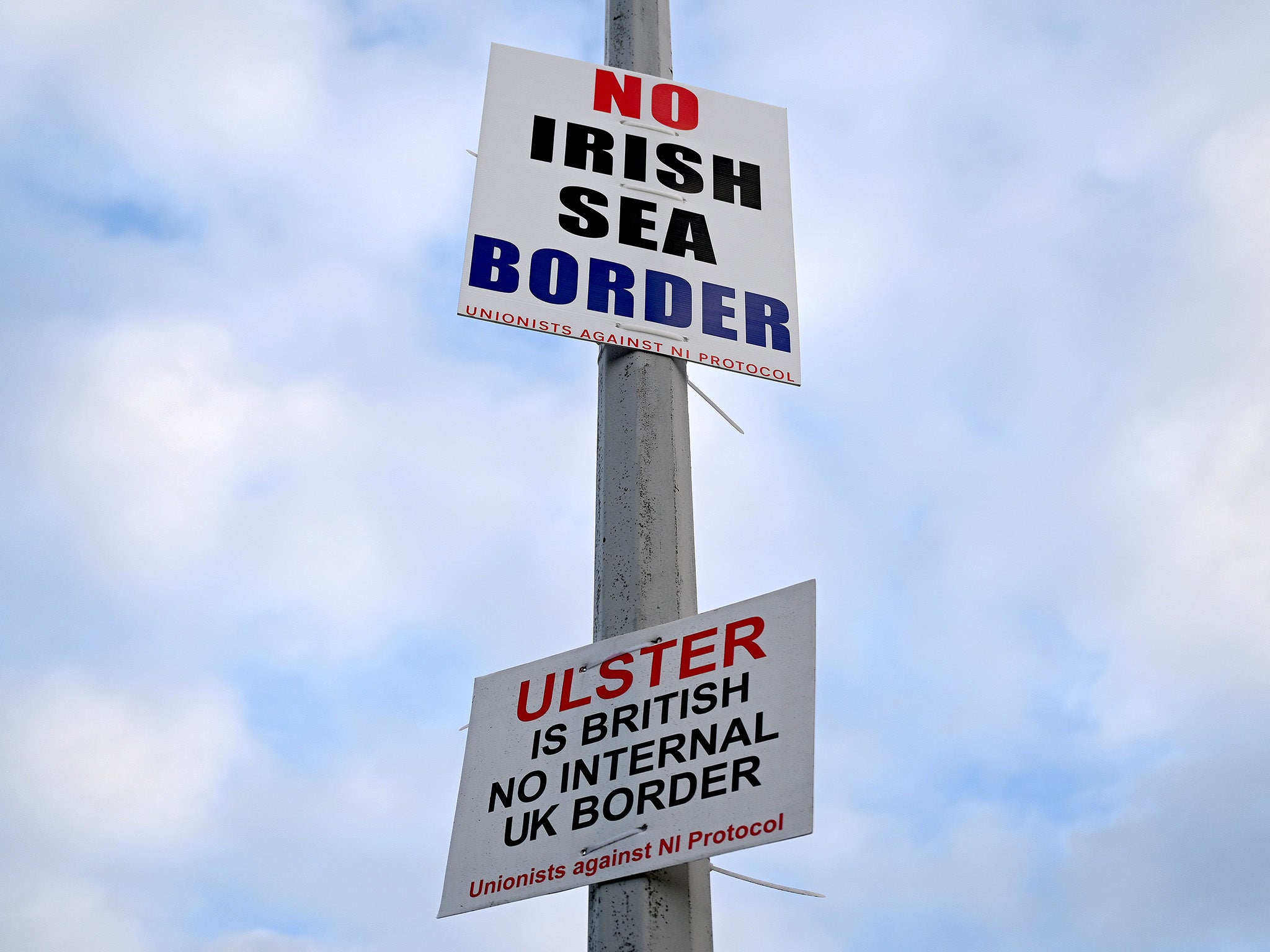
So maybe Boris Johnson’s Brexit deal wasn’t as marvellous as he made out – certainly the citizens of Northern Ireland have their doubts. At least half the population seems pretty peeved that the border once surrounding the six counties now seems to be down the middle of the Irish Sea. And it seems they are not able to file unnecessary paperwork in the waste bin as the prime minister promised they could. What was once dismissed blithely as Project Fear might instead be baring its teeth.
But whatever the rights and wrongs of the deal, whatever the political ramifications and their effects on the 1998 Good Friday Agreement, whether that leads to a wholesale reworking of the Northern Ireland protocol or, down the line, a united Ireland, the recent violence in Belfast and elsewhere has brought into relief the significance of borders and their geographical, political and societal reasons for existing. And however much discord the impasse in Northern Ireland is precipitating, at the very least its border with the Republic in the south is one that is delineated in international law.
It’s a situation some populations could only dream of. In fact, a fair few populations. How many international border disputes are running today? Ten? Twenty? That’s nowhere near. There are estimated to be 200 plus and counting, which might give credence to those who argue the nation state is not a sensible political basis on which to organise the world. The good news is that most do not involve firing guns. Long gone has been that symbol of the Cold War and possibly the most (in)famous border in history, the Berlin Wall, but in its place are disputes ravaging relations between the likes of Ukraine and Russia, Burundi and Rwanda, Chile and Peru. Many of them predated the Berlin Wall; many have long outlasted it.
It’s important here to make clear there is a distinction between boundary and territorial disputes. “The former,” explains Martin Pratt, director of Bordermap Consulting, a Canadian company working to support boundary making and resolve territorial dispute, “tend to be legal and technical in nature – and therefore potentially more easily resolved. Territorial disputes over which political arguments around sovereignty hold sway are more likely to involve armed conflict.” Gaza, Crimea and Kashmir are testament to the nationalistic and political fervour the latter can evoke.
They range, of course, from the well known to the obscure. For every Gaza there is a Swains Island. In its draft independence constitution Tokelau included the island which American Samoa claims as its territory. And for every Crimea there is a Pig War – fought between Britain’s Vancouver Island Canadian colony and the United States in 1859 over the San Juan Islands off the Washington state coast – so named because the only fatality was a single pig.
Of course, Canadians and Americans have long since become staunch allies so who would have expected them to still be disputing where in the Beaufort Sea to place their mutual border (argument seems to rest on the phrase “as far as the frozen ocean” which, thanks to climate change, varies much more today than it once did) and quarrelling over who owns Machias Seal Island and North Rock off the Maine coast?
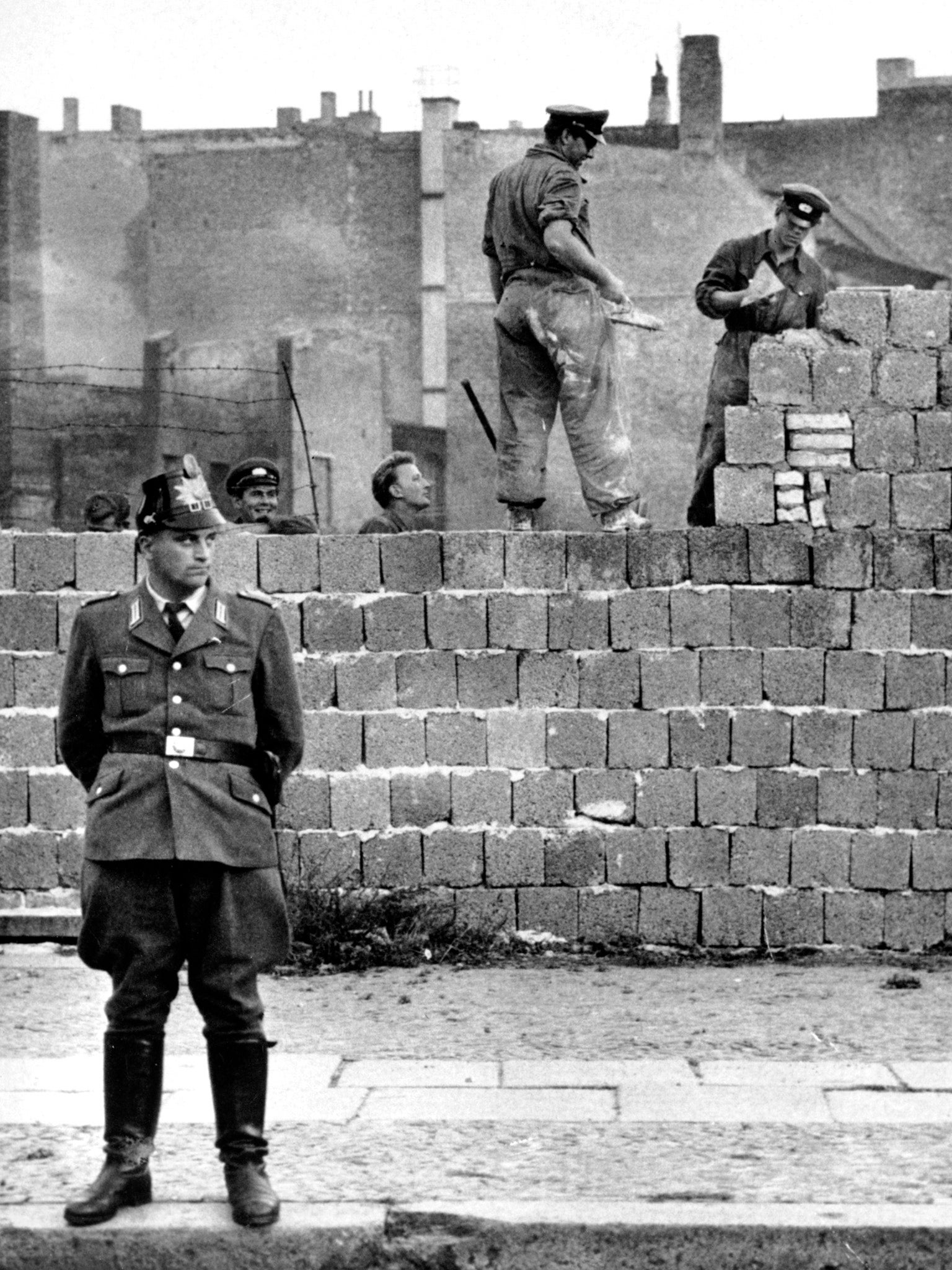
For such an otherwise genial nation, Canada seems set on bickering over territory with its allies. It also claims ownership of Hans Island near Greenland, leading to Danish and Canadian officials periodically visiting to run up their nation’s flag and remove their rival’s. “We wait until they’re not looking,” says an anonymous official with the Canadian Coast Guard.
Similarly, friendly European neighbours Portugal and Spain still squabble over the town of Olivenza, following a difference of opinion interpreting the 1801 Treaty of Badajoz and the 1815 Congress of Vienna. Spain meanwhile has another squabble with another ally, the UK, over Gibraltar but we won’t go there. Or to Ceuta and Melilla. Well, not yet anyway.
In fact, of the planet’s 195 nations and their dependencies a mere 60 (about 30 per cent) do not have a dispute with a neighbour over territory. Step forward the likes of Qatar, Sri Lanka, Switzerland (unsurprisingly) and the Federated States of Micronesia.
But of course the issues that really exercise the minds and often populist motivations of politicians and their diplomats, lawyers and armies are the ones where historical animosity runs deep. Mistrust, grievance, sectarianism and tradition mean such areas have been claiming casualties and accumulating human misery sometimes for centuries.
Many of these are often defined as “frozen conflicts”, where military hostilities have paused or ended but no peace treaty has resolved the matter to the combatants’ satisfaction. In theory fighting could restart at any juncture. Perhaps the most obvious frozen conflict is Korea where the warring armies of north and south failed to sign a treaty when the fighting stopped in 1953. They only formally agreed to end the war in 2018 but the uneasy and frequently fractious truce that has reigned since the Fifties has continued, dividing the peninsula into a US-backed democratic, capitalist south and a totalitarian single-party people’s republic in the north, presided over by the despotic Kim dynasty. Former US president Donald Trump’s unexpected and abstruse personal overtures to supreme leader Kim Jong-un failed to break the deadlock and North Korea’s nuclear pretensions remain unchecked.
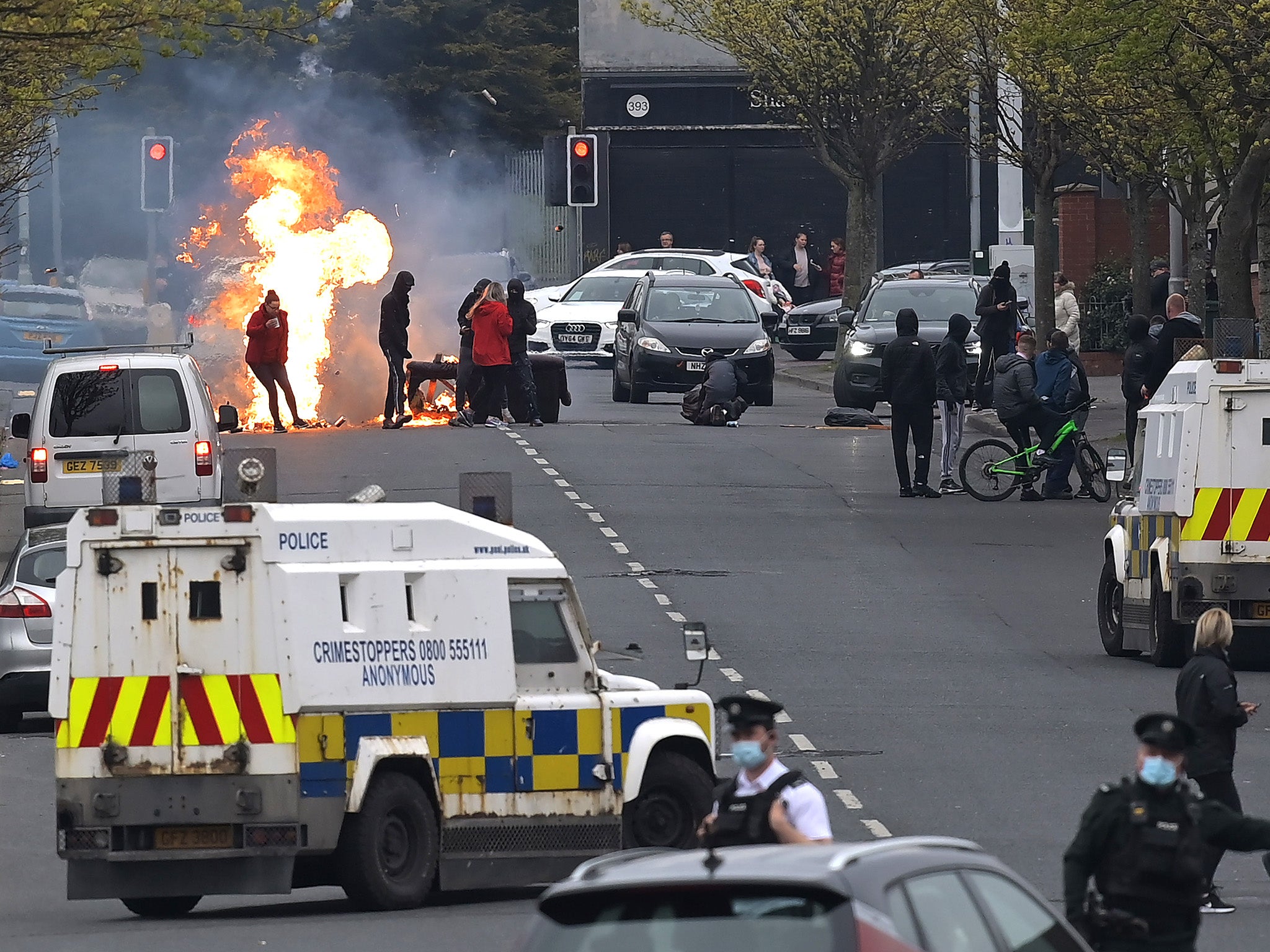
If you were compiling a list of territorial disputes most likely to escalate in devastating fashion Korea would, of course, be near the top. It, like the Russian annexation of Crimea and the Israeli occupation of the Palestinian territories of the West Bank and Gaza, are well-documented, still evolving, contemporary conflicts.
Crimea, an autonomous republic within Ukraine since 1954, however, differs from Korea in that its annexation by Russia in 2014 was denounced by a vast majority of countries – a United Nations General Assembly vote overwhelmingly condemning the occupation. Yet Russia remains, insisting it is protecting Crimea’s majority ethnic Russian population and it has conducted incursions further into Ukraine in the eastern Donbas region.
In April, the biggest build-up of Russian troops on the border with Ukraine since 2014 was reported in response, Russia argued, to “increased Ukrainian and Nato military activity”. Russian president Vladimir Putin, it seems, is determined push his luck pretty much anywhere just to see where it gets him: the Kuril Islands dispute with Japan (which calls the islands the Northern Territories) and involvement in Abkhazia, South Ossetia and Transnistria are just a few of the other side issues bubbling along.
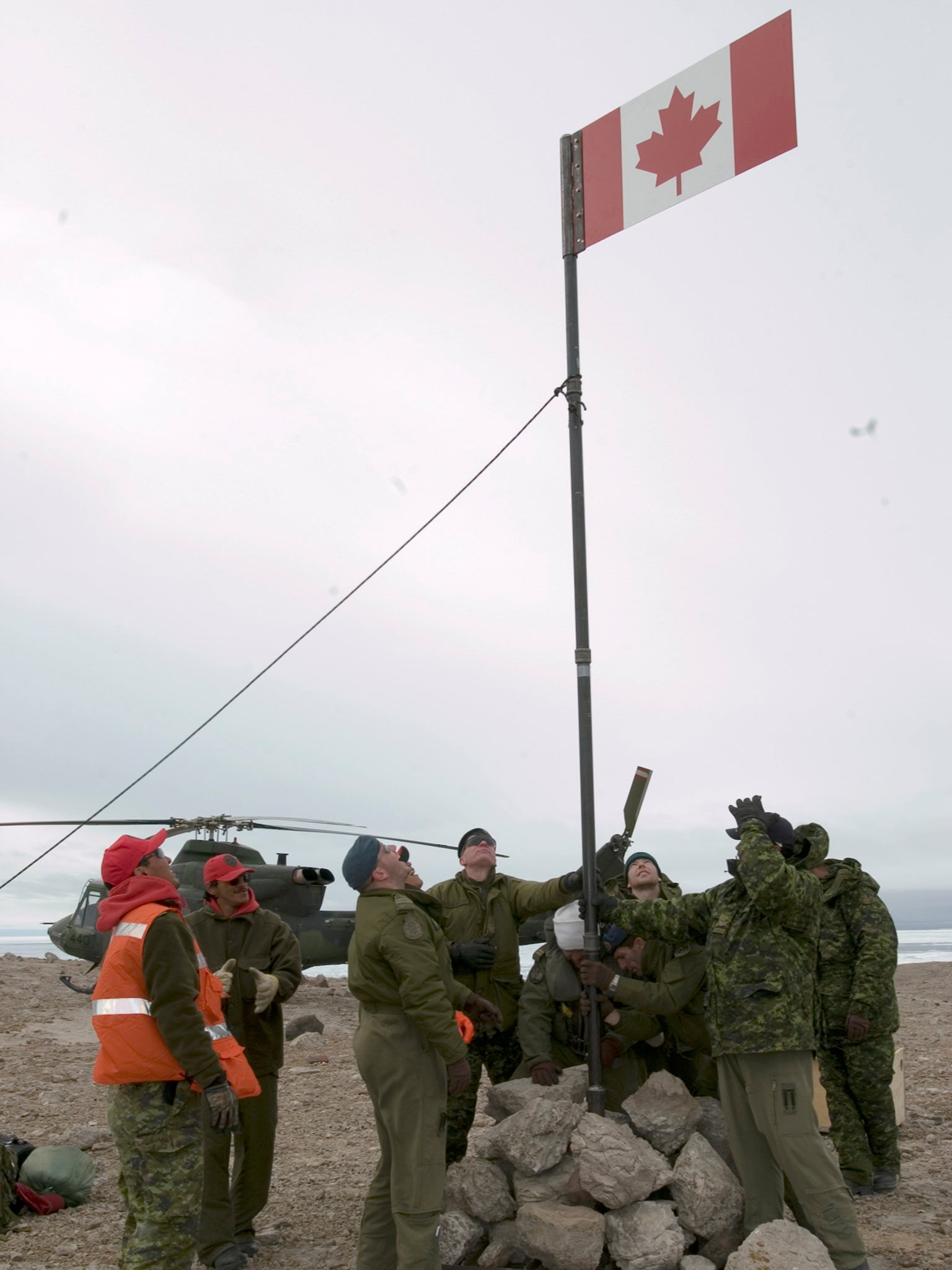
Both Korea and Crimea remain significant because of their immediacy but also because they are a measure of how much the international community will bear. What would need to happen along the four kilometre-wide Demilitarised Zone dividing Korea, or in Crimea, to trigger war?
They are bellwether conflicts being closely watched by the likes of China, itself with its eyes on Taiwan, a territory it claims as its own – more of that later – and beyond. If Russia’s presence in Crimea becomes permanent, as is possible, or sanctions on North Korea fail to curtail its nuclear missile testing this has repercussions elsewhere. Deputy director of the Russia and Eurasia programme at the Centre for Strategic and International Studies in Washington DC, Jeffrey Mankoff, says: “The message seems to be that the consequences of violating international borders might not be as serious as we believed.”
Perhaps one major impediment to the resolution of disputes is that there is no international authority that can impose boundaries without a nations’ consent. Philip Steinberg, professor of political geography at Durham University’s International Boundaries Research Unit (IBRU), says that although “states can undertake paths towards settling disputes from informal mediation to adjudication by bodies such as or the International Court of Justice (ICJ), the parties have to agree to be bound by their decision. The UN can’t of its own volition say ‘this is where we are drawing the line’.”
“The UN and other bodies such as the African Union and nations such as Norway with a reputation for neutrality, offer third-party mediation,” adds Pratt. “But states can always avoid being ‘dragged to court’ if they don’t want their disputes settled by third parties.
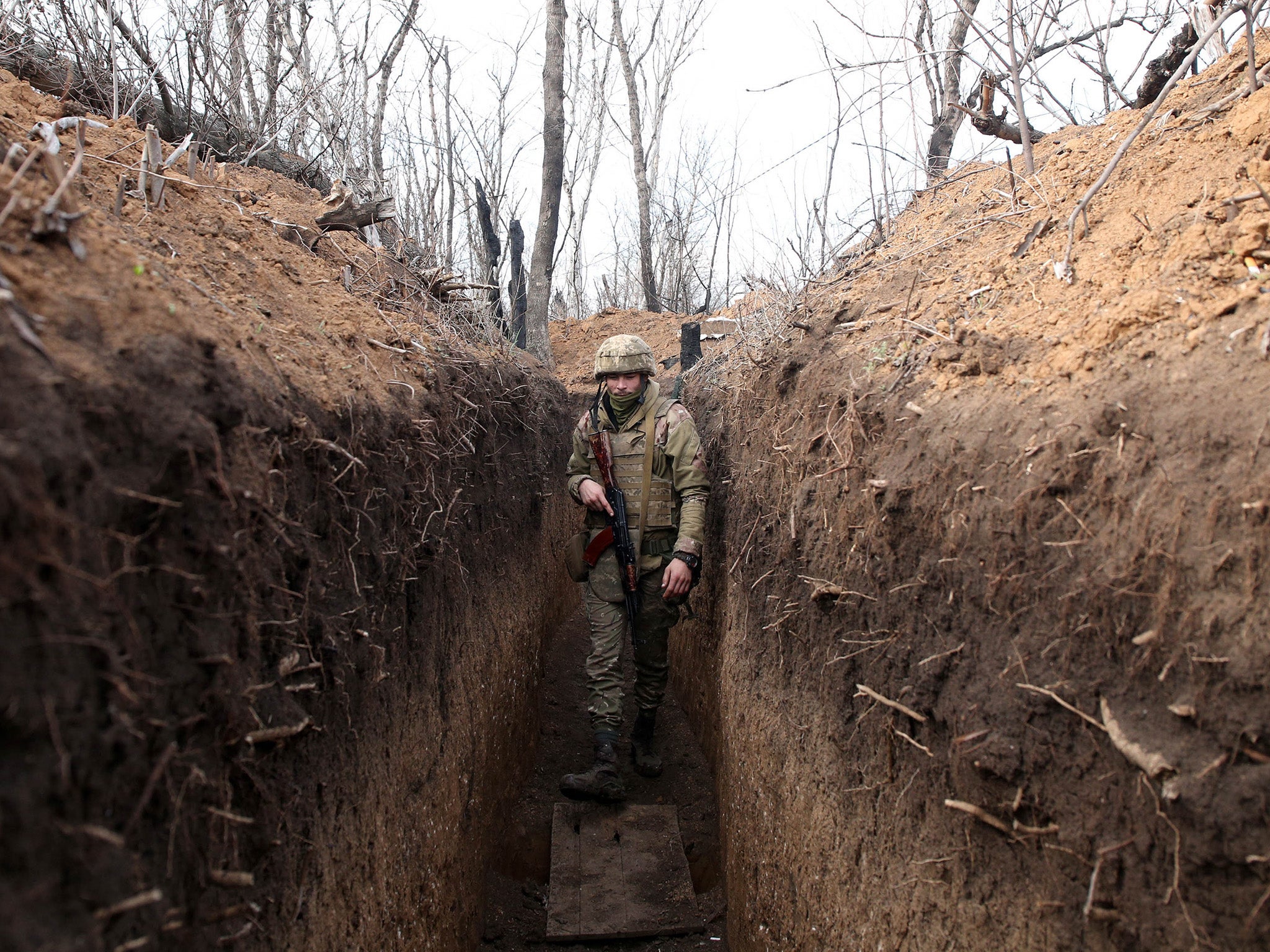
“In any case attempts to draw lines on a map and allocate the two sides to different peoples are bound to be confounded by the ways communities, and even individuals, cross borders,” says Steinberg. “Where it’s been tried – the late 1940s partitions of Palestine and India, the break-up of Yugoslavia, the partition of the island of Ireland – there have been consequences.”
And as Korea and the 1967 Israeli occupation of the Palestinian territories of the West Bank and Gaza, previously occupied since 1948 by Jordan and Egypt respectively, have shown us, rapid solutions to such disputes are rare. This month saw the biggest escalation in the Israeli/Palestinian conflict for many years – around 250 deaths were reported before an Egyptian-brokered ceasefire came into force on 21 May. The standoff between India and Pakistan over who controls Jammu and Kashmir is equally long-running and began with the partition of India in 1947 and has created a 725-kilometre-long fortified “Line of Control” between the two. Recently, populist Indian prime minister Narendra Modi has used the conflict to bolster his nationalist credentials. But with both nations possessing nuclear capability it remains to be seen whether mutually assured destruction or gung-ho jingoism plays the bigger role. A frozen conflict set to defrost?
India also has a border grievance with its even bigger neighbour and nuclear power China, also partly over Jammu and Kashmir but elsewhere along the 3,440 kilometres they share. The border between the two is ill defined, and a war in 1962 which India lost resolved nothing. Both build infrastructure along the frontier and both make accusations of territorial infringement (Nepal has similar issues with incursions from both nations, a situation Nepal’s foreign minister Pradeep Gyawali describes as “tiring, tiresome, time-consuming, expensive and pointless”). Over the past year skirmishes with sticks and clubs rather than nukes have caused casualties on both sides.
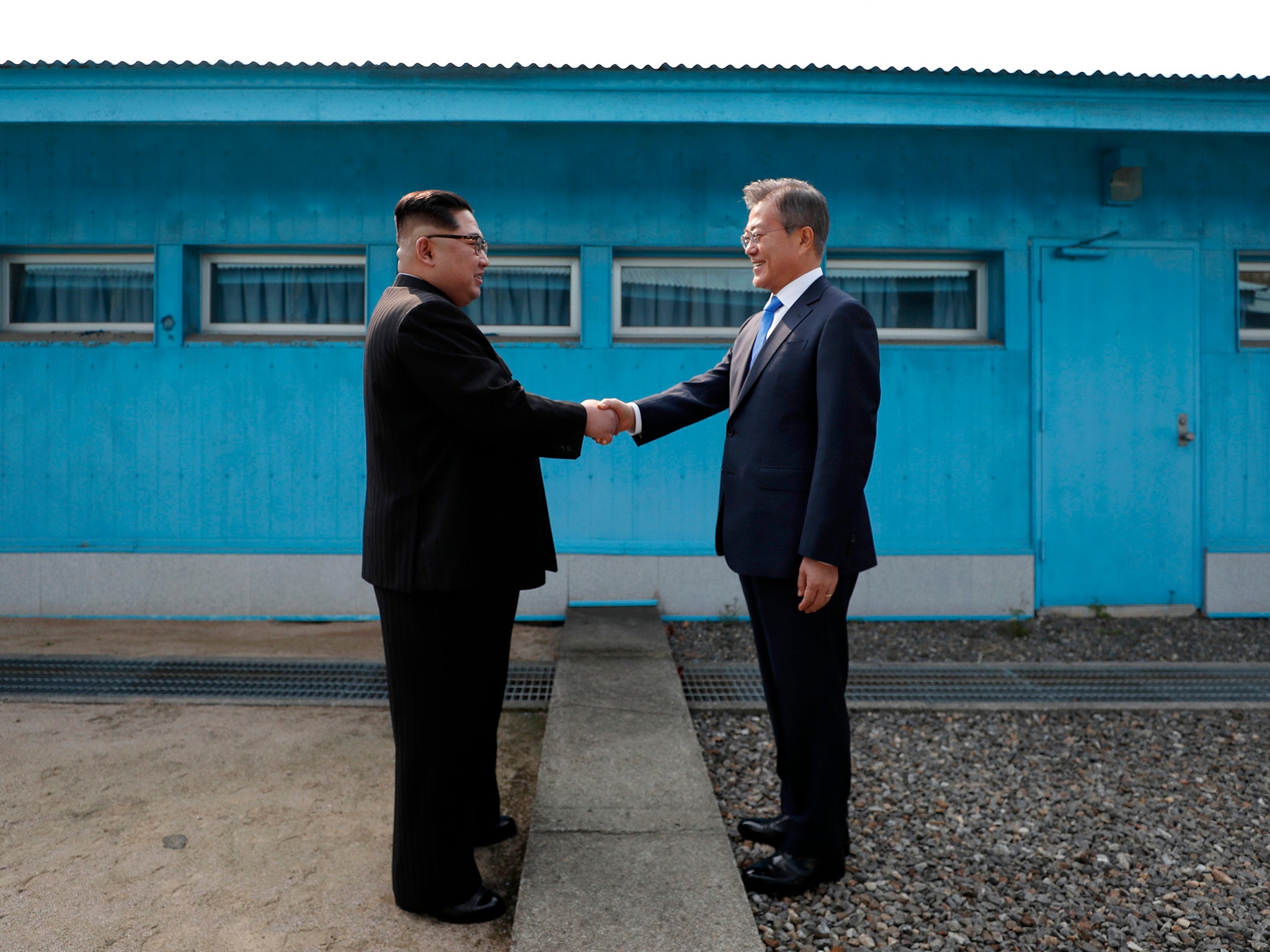
But China has its gaze on a bigger prize – Taiwan. And this is, perhaps, where it might be keeping a keen eye on developments in eastern Ukraine and elsewhere. When the Chinese government of Chiang Kai-shek was overthrown by the communists led by Mao Zedong in 1949 it fled into exile on the island of Taiwan where it declared itself the Republic of China. The mainland People’s Republic of China in Beijing has always claimed sovereignty over the island (and likewise the Taiwanese government has claimed sovereignty over the mainland).
Taiwan is recognised as an independent state by only a few other nations, mainly because the People’s Republic refuses diplomatic relations with those that do. Because of Taiwan’s almost unofficial nation status, how far the People’s Republic might go in “reclaiming” the island remains moot. The international community seems not to have intervened beyond sanctions in the arguably more clear-cut case of Crimea so Beijing may be emboldened. Meanwhile, both Chinese governments insist they are the legitimate rulers of the semi-enclaves of Macau and Hong Kong and both make identical claims to territory in the South China Sea. A notorious nine-dash line drawn on a map in 1949 delineating a large portion of the sea is still used by both governments as a basis for their demands.
In the East China Sea Beijing is locked in dispute with Taiwan and Japan over the Japanese-administered Senkaku Islands (known as the Diaoyu Islands in Chinese), an uninhabited chain that would significantly expand Beijing’s seawaters, air space and mineral resources. There is more, not least China’s unratified border with Bhutan. As China’s influence and ambitions expand so, it seems, do its territorial disputes.
Not all disputes are necessarily being played out contemporaneously. Some remain politically significant, but – at least today – less deadly. Cyprus has been divided since 1974 when in July a Greek nationalist coup attempted to unify the island nation with Greece. The Turkish military invaded from the north coast, its government arguing it was protecting the Turkish Cypriot minority and by August had captured a third of the island. A United Nations-brokered ceasefire halted the advance at what has become the “Green Line” monitored by peacekeepers. With Greek and Turkish populations expelled or exchanged north to south and vice versa, the island is effectively partitioned into Turkish North Cyprus and the Greek south.
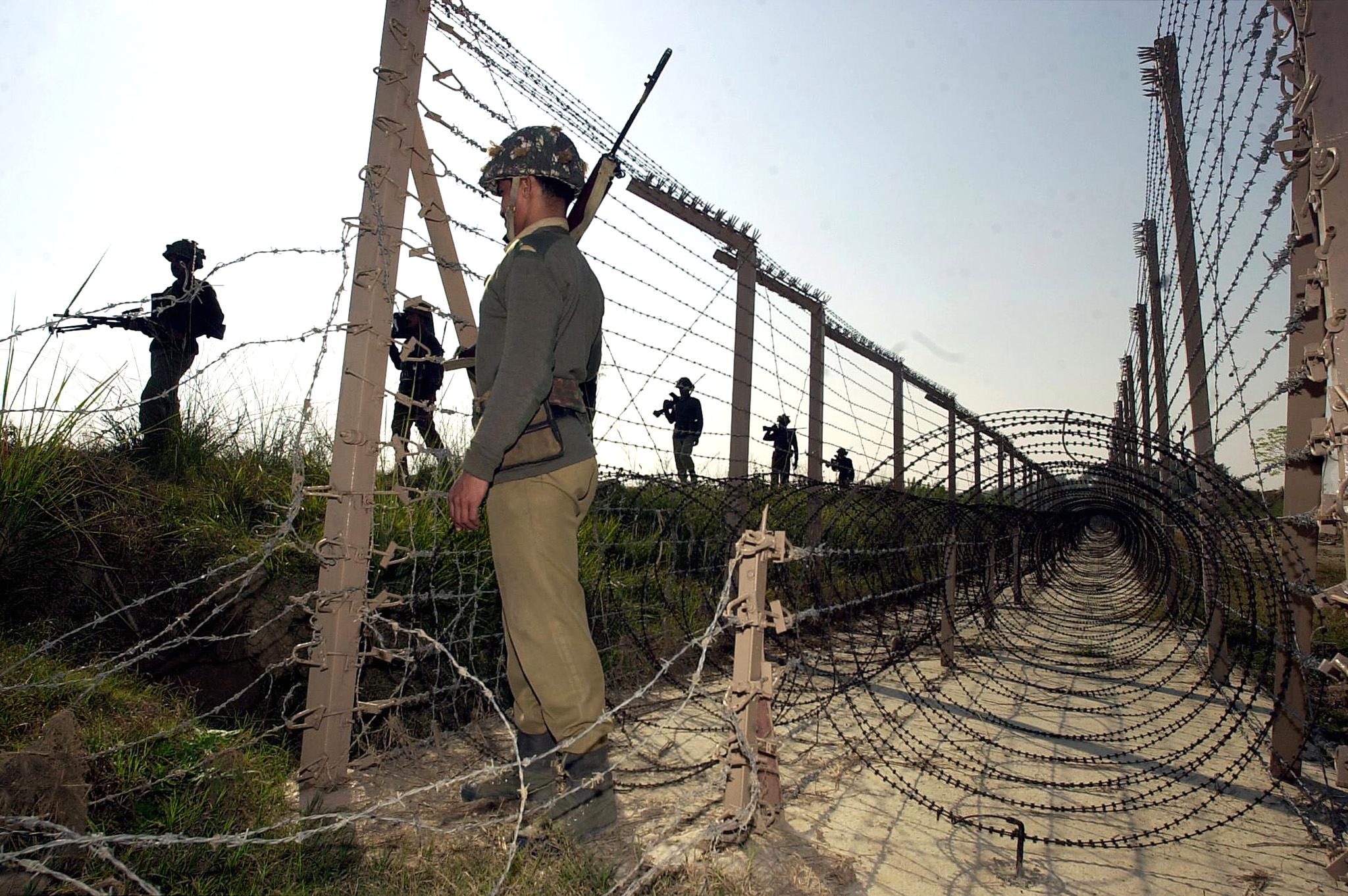
So sudden was the turn of events that the Green Line runs straight through the capital city of Nicosia (Europe’s last divided capital following the fall of the Berlin Wall). Entire streets were divided in half and for years empty taverna tables and overturned chairs sat forlornly where they had been abandoned in the middle of the buffer zone.
North Cyprus is not recognised by the UN (only by Turkey) meaning that if you wish to holiday there you must first fly to the Turkish mainland. But despite Turkish president Recep Erdoğan’s often sabre-rattling foreign policy stances it seems there is little chance of a return to violence. Although an umpteenth set of talks began in Geneva in April, the conflict is now one of the most frozen of all.
Not as frozen, of course, as the one enveloping Antarctica. Dreadful punning aside, a number of nations including Chile, New Zealand, the UK, France, Norway, Argentina and Australia have claims to parts of the continent but none are recognised following the signing of the Antarctic Treaty of 1961, which states it is “in the interest of all mankind that Antarctica shall forever be used for peaceful purposes and shall not became the scene or object of international discord”.
Any nation not a signatory to the treaty can still theoretically claim the land as terra nullius (or “land belonging to no one”), meaning that the US and Russia are reserving the right to do so in future. High ideals are at stake that may be tested to the limit, especially if the continent proves to be mineral rich.

And that is a key factor. “Disputes today most often arise when a piece of territory that was of little political, economic, cultural or military importance suddenly becomes more so,” says Steinberg. “The ocean is a good example. Increased potential for resource extraction led in 1982 to the UN Convention on the Law of the Sea (Unclos). Today, states are in the process of defining and delimiting these zones, and negotiating how to divide or share them.”
The UK is one of the claimants to Antarctica and unsurprisingly as once the world’s foremost imperialist nation it is not immune to territorial disputes. It’s a long list including the Falkland Islands (which Argentina calls the Malvinas) and South Georgia, which despite Argentina’s defeat in the war of 1982 did little to dent its demands. Similarly, Spain claims Gibraltar, the British Overseas Territory on its southern tip. Its feud with the UK is officially the world’s longest-running territorial dispute which kicked off in 1713 when under the Treaty of Utrecht concluding the War of the Spanish Succession, Gibraltar was ceded to Britain in perpetuity.
Spain’s claim is somewhat undermined by Ceuta and Melilla, its own autonomous cities on the Moroccan coast over which Rabat proclaims sovereignty. Leaving Northern Ireland and – one for future history books – Scotland out of it for now, there’s also the status of Rockall, a lump of granite in the Atlantic also claimed by Iceland, Denmark (on behalf of the Faroe Islands) and Ireland; the Chagos Islands or British Indian Ocean Territory, claimed by Mauritius and the Seychelles; and the status of British military bases in Cyprus.
Elsewhere on the planet, the list grows. The republics of the former Soviet Union are common flashpoints. Only this month at least 30 were killed in fighting on the border between Kyrgyzstan and Tajikistan. And there is Armenia, Azerbaijan, Western Sahara, Iraq, Guatemala (which claims half of Belize), Kosovo, Kurdish claims of independence… do they all matter? Yes, they do. Locally they can be a source of insecurity for their populations and troublesome internationally when conflict spills outwards. Obviously invading armies cause civilian casualties, unintended or otherwise, but when organisations such as the IRA take bombing campaigns to London, Germany and the Netherlands or Chechen separatists attack a Moscow theatre or a school in Beslan, their dispute can also affect unsuspecting people with little knowledge of the conflict.
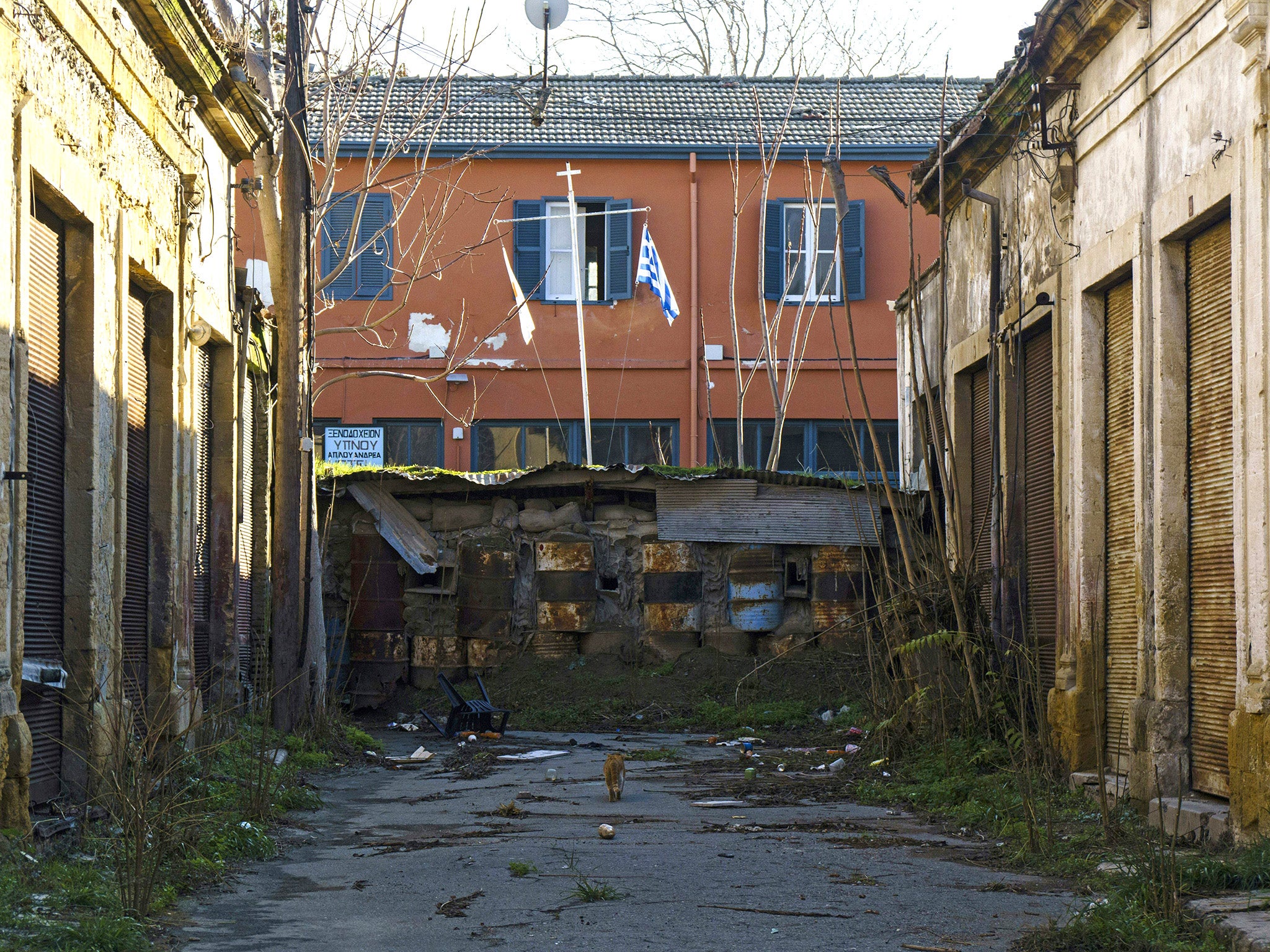
There are 325 international land borders stretching over 250,000 kilometres. Where they fall is frequently dependent on ethnicity, culture, race, religion or language but terrain, war, politics or conquest can impose borders that are more arbitrary. “Borders don’t just happen without reason,” says Steinberg. And obviously the need for access to water, fisheries, arable land and mineral resources means forever shifting populations and requirements. Climate change and the famine and environmental damage it could bring may mean sovereignty claims of the future will be based around resources as much as nationality, ethnicity or history.
Territorial disputes for any or all of these reasons gave rise in 2019 to the displacement of approximately 45 million people creating 30 million refugees and asylum seekers. Hunger, disease, trafficking, terrorism, smuggling and poverty are frequently the human cost of political and nationalist ambition, while fences and security services seek to prevent their dispersal. “Borders,” Primo Levi declared, “are where wars start.”
There will be more to come. Steinberg believes new frontiers for conflict will open up. “Outer space, the deep seabed, underground…” he suggests. “All are beyond the control of individual states but only a few have the capacity to exploit them. What do ‘borders’ mean in such circumstances? Some treaties do exist to govern these spaces, but how robust are they?”
Back on the surface does Putin really have his eye on the Baltic states using the same rationale of protecting Russian ethnicity that he believed worked in Ukraine? Nato’s supreme commander in Europe, General Tod Wolters, has warned that Putin needs only the smallest pretext to send in troops, more likely into the breakaway state of Transnistria, officially in Moldova, but maybe anywhere ethnic Russians reside, up to Estonia in the north. “Worrisome,” was the word he used.
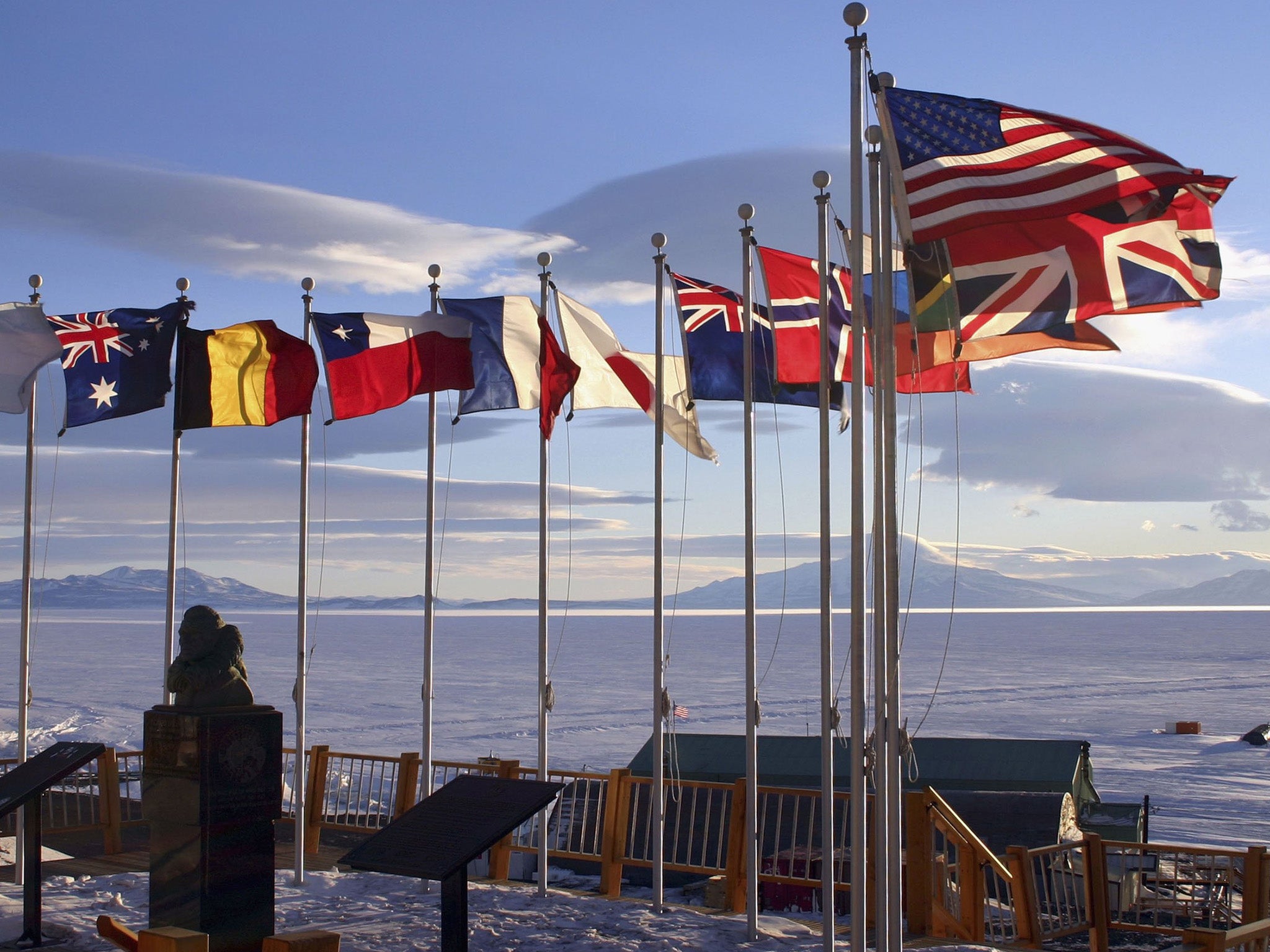
And while Syria has been preoccupied with its civil war, as that abates it could, according to US diplomat Richard Haass turn its attention again to the Golan Heights on its western border. This region was seized by Israel in 1967 during the Six-Day War that also saw it take Gaza and the West Bank. “For some nations the symbolic value of land is important,” says Pratt. “That’s not easy to quantify but it is often the most significant perceived value especially in countries which have fought over the territory.”
Elsewhere, as African nations come to terms with the post-colonial continent that had previously seen huge swathes of land divided up apparently entirely arbitrarily by European powers, boundary disputes will continue to proliferate. Eritrea, Ethiopia, Somalia, Cameroon, Nigeria, Sudan and Uganda among others have all fought wars in the recent past over sovereignty claims: in the case of Eritrea and Ethiopia a badly drawn colonial-era map produced a very contentious boundary disputed by both.
“The cause of many past conflicts has been that people don’t divide into neat ethnic communities or even if they do, these communities are not clustered neatly in bounded territories,” says Steinberg. “In some cases, such as the European division of Africa in the 19th century, colonialists didn’t even try to draw lines that matched up with perceived divisions between peoples.” Conflict was pretty much baked in.
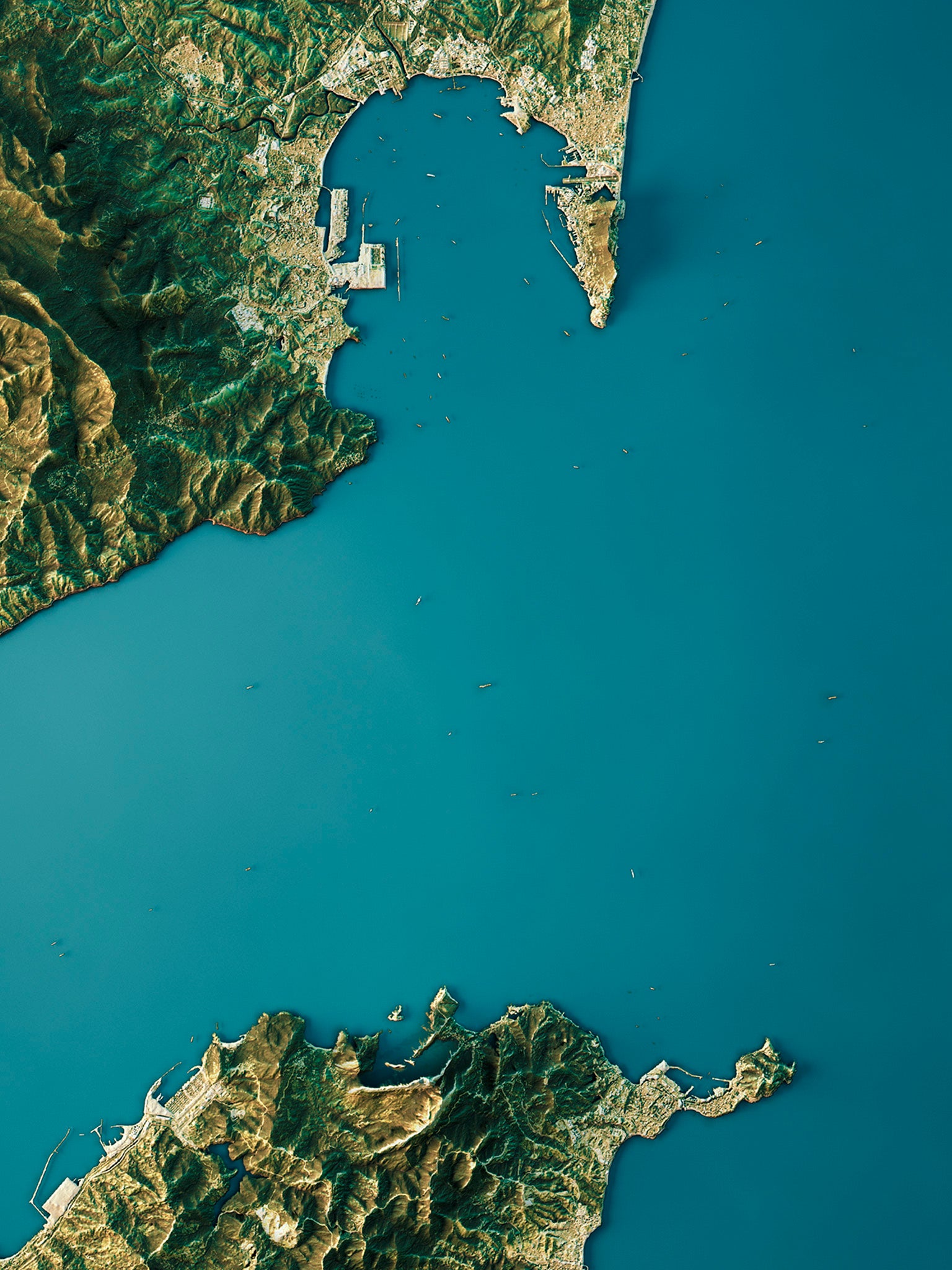
We haven’t even started on the Spratly Islands, a chain in the South China Sea that has the distinction of being claimed in whole or part by China, Taiwan, Vietnam, Brunei, Malaysia and the Philippines. “But even in cases such as this which are very conflictual, lawlessness does not reign,” says Steinberg. “The claimants justify their positions using Unclos which, as signatories, is a good starting point.”
The UN Charter states: “All members shall refrain in their international relations from the threat or use of force against the territorial integrity or political independence of any state, or in any other manner inconsistent with the purposes of the UN.” And there is good news, the ICJ has mediated and helped to resolve disputes between Sierra Leone and Guinea, and Niger and Benin this century, among many others. Both sides in all cases accepted the outcome.
That said, the court’s rulings are not always the end of the matter. The Saudi Arabian-Yemen border demarcation dispute was supposedly solved by the Treaty of Jeddah in 2000 yet it hasn’t stopped Saudi-led intervention into Yemen’s civil war. It seems obvious that our propensity to divide our planet into chunks based on sometimes irrational determinants means the future will likely continue to be contentious and confrontational. But would a planet without borders or nation states put a stop to such discord?
Organisations such as the No Borders Network believes it could but Steinberg has reservations. “It seems likely that even if borders stopped being obstacles to movement, differences between places would persist. So I don’t think that the end of borders, as we know them, would lead to everything changing. But it would lead to a fragmentation of political power because ultimately borders exist to project power and to control people and their activities through the control of territory.”
Maybe we have to work with what we have, however imperfect that may be. Steinberg remains sanguine. “I don’t think there are any disputes that definitively cannot be resolved,” he says. “But I would say that solving some of the more pervasive will involve more than moving an international boundary.”
“Lawyers are definitely better than guns,” agrees Pratt. “But losing territory can make governments hugely unpopular – so many are wary of putting territory in the hands of judges from other countries. When you have different communities of people whose identity is linked to the same territory, it is likely to be difficult to divide or manage that territory to the satisfaction of both. Sometimes the us and them narrative becomes so deeply ingrained that significant numbers on both sides ‘need’ the conflict to maintain their identity.” But Pratt too believes that no dispute is totally intractable. “I would never say never,” he concludes.
Read More:
IBRU works with governments, ministries, ambassadors, NGOs, lawyers and others to resolve disputes. “We aim to act as an honest broker,” says Steinberg. “Disputes need not be acrimonious they can be mediated and peaceful.”
Ultimately most are. The border between Belgium and the Netherlands runs in part along the Meuse. The river’s position had shifted over time leaving a sliver of Belgium on the Dutch side. The situation was left up in the air until a headless body was found there in 2012. Which police force should investigate? Even between friendly neighbours borders serve a purpose and the two nations agreed to redraw the border officially in 2015.
Of course, some disputes are entirely accidental – simply down to human error. In 1868 a survey to demarcate the Oregon-California state boundary in the US contained mistakes meaning that 31,000 acres of California is in Oregon, and 20,000 acres of Oregon is in California. It was a rather large blunder, and arguably one they brought on themselves. Which is something Boris Johnson might want to consider when he ponders what is happening right now in Northern Ireland.
Join our commenting forum
Join thought-provoking conversations, follow other Independent readers and see their replies
Comments